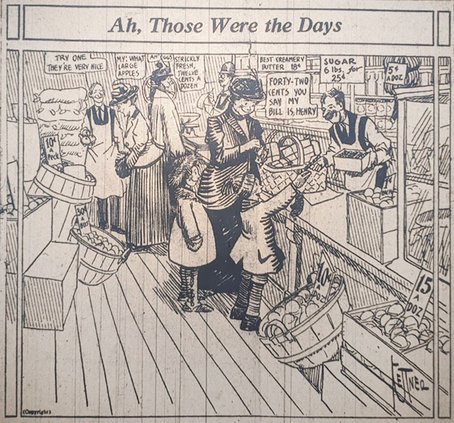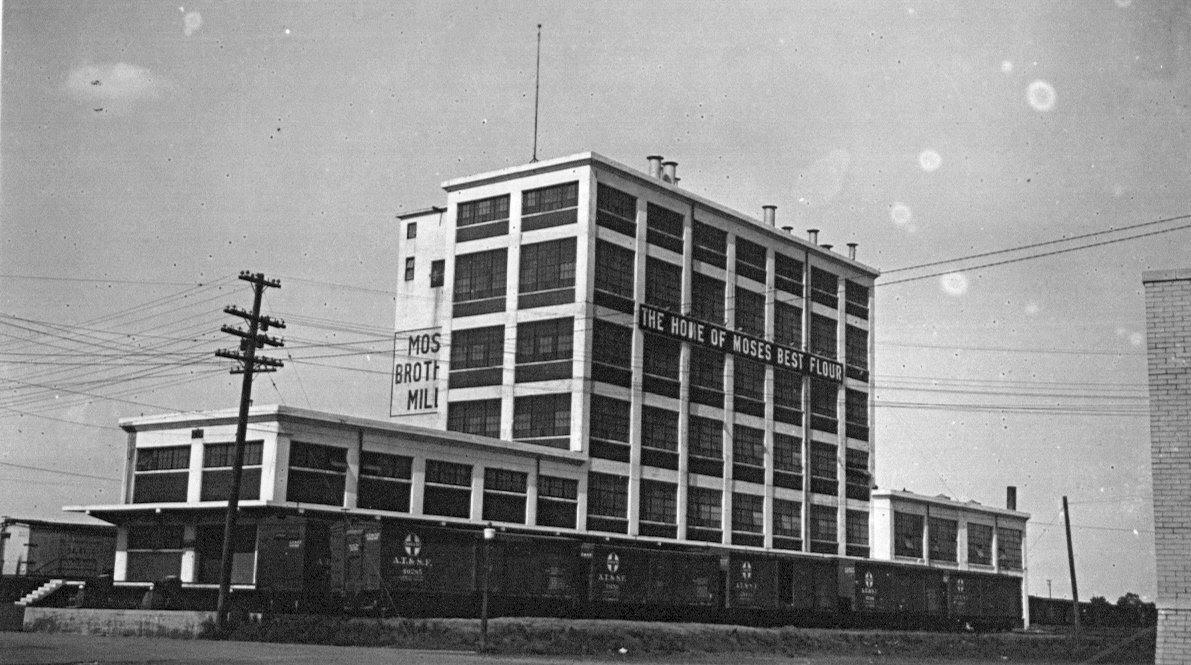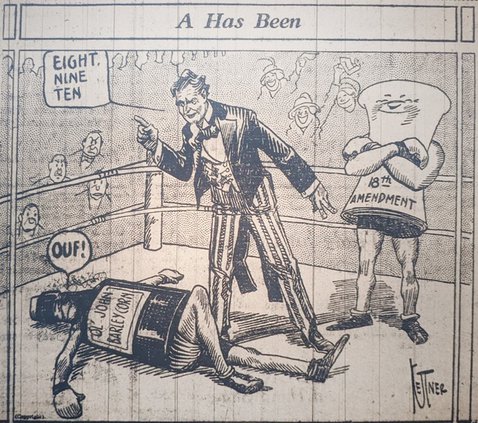Each week we’ll take a step back into the history of Great Bend through the eyes of reporters past. We’ll reacquaint you with what went into creating the Great Bend of today, and do our best to update you on what “the rest of the story” turned out to be.
Constitutional prohibition became effective 100 years ago this week throughout the United States as a result of the 18th Amendment. As of midnight, Jan. 17, 1920, the manufacture or sale of any beverage containing one-half of one percent or more of alcohol was declared unlawful. Prohibition officers were granted powers of search and seizure, “except for the search of private dwellings unless used for the unlawful sale of intoxicants or in part as a place of business.”
According to reports in The Great Bend Tribune, it wasn’t expected to be a big change in the day to day lives of people around here.
“They have been living under the nationwide war-time ban on alcoholic drinks since last July.”
However, liquor purchased prior to prohibition kept at home for personal use was permitted.
Many people, it was reported, had stockpiled a supply prior to the war-time order, but now they would not have an opportunity to replenish that supply legally. Liquor seized would be destroyed, and all advertising of liquor was prohibited.
But, home made “non-intoxicating ciders and fruit juices” for personal use was permitted, as was the manufacture of alcoholic liquor for sacramental and medicinal uses under restrictions. The term was undefined, but generally was understood to be beverages in excess of one half of one percent limit. (Recall the popular 1970’s television series, The Waltons, and the Baldwin Sisters “recipe”.)
Interestingly, when it became clear the war-time prohibition would not be lifted, retailers began to look to foreign countries where they could off-load their surplus.
With thousands of gallons of whiskey remaining in bonded warehouses in Kansas City and elsewhere, the Bureau of Internal Revenue was exerting extreme precautions.
“Lack of shipping space prevented more than a fraction being exported. Cuba and the Bahamas have received most of what was sent abroad. There were 70,000,000 gallons on hand when wartime prohibition went into effect. The amount exported is not known but it is probably less than 20,000,000 gallons,” the report stated


In the Saturday, Jan. 17 edition of the Tribune, a Kansas City report painted the picture of the day.
“A few of the former haunts of Mr. Barleycorn still remain open, ostensibly for the purpose of disposing of weak and watery fluids called “soft drinks,” but their tomb-like interiors have lost all of the gaiety of the wet era. At one of the downtown hotel bars, not a customer was in evidence and the bartender was whiling away the time over the sporting page of a newspaper. In former times, they were lined two and three deep and the mixed conversation along with mixed drinks gave one an impression of why they never finished the Tower of Babel.”
And yet, prohibition was not dampening the spirits of the young people of Great Bend. We found a report about a Leap Year Dance held Saturday night.
“With the Elks hall tastily decorated in old rose and blue, it would have been hard to have found a more suitable place for giving a Leap Year Dance — the kind the girls of the younger society set gave to thirty couples last night. Programs with suitable lines bearing on the thought of the evening were given the guests upon arrival, and for favor dances incense sticks, whistles with flowers and confetti added to the delight of the guests. During the evening, punch was served and the dancers danced themselves into ecstasy.”


Meanwhile, elsewhere in Great Bend, less wholesome entertainment was underway. In the report, “Six Great Bend Men Take Room In Moses Mill to Play Poker,” it was reported that “the city’s coffer was replenished to the extent of $150 late Saturday night” when six young men who were playing poker in the Moses Mill were arrested. A night watchman at the mill had allowed the men to use a smoking room for gambling and assured them that no one would hinder them in their pleasure, the report went on.
“The city police, however, were on the job and entered the mill through the engine room where the night watchman was stationed, but the latter did not notice them until they had gained admission and had arrested the six men. The room was an ideal place for playing poker and everyone of the participants had settled down for an all night party. The money and cards on the table at the time of the arrest were confiscated by the police.”
Was this a set-up? We smell a rat!


One story we look forward to digging into in the coming year, which we are assured is very intriguing, is how Ellinwood’s Wolf Brewery responded to prohibition. The Kansas City report explained that while beer could be turned into vinegar, or the alcohol distracted in order to be sold as “near beer,” the sale of hard liquor was heavily restricted.
“Sales of whiskey may be made only to druggists with government permits, who in turn may sell only to physicians. The physicians also must obtain permits from the internal revenue office.”
The 18th Amendment was repealed by the 21st Amendment in 1933. For 13 years, alcohol essentially went underground. Speaking of underground, we hear there’s a place in Ellinwood where one can enjoy a speakeasy experience.
Library note
While the Tribune in 1920 didn’t typically provide a library report, this week was different. The first meeting of the League of Nations occurred on Jan. 16, 1920, and was instantly international news. It kept visions of World War 1 fresh in the minds of readers. It was therefore newsworthy to report that Great Bend’s library had added to its collection “Heroes of the Argonne; An authentic history of the thirty-fifth Division,” by Charles B. Hoyt. With so many young men from Great Bend returned from that distant forest, the first paragraph of the forward was quoted:
“On the pages which follow, the aim is to better acquaint those who stayed at home with what the fighting men did in France. If the present story of the Thirty-fifth Division serves to give an insight into the soldier’s life among the French peasantry; if it carries in some degree a picture of their trench days and their work on the fields of Argonne; and if to the men themselves, it serves as an authentic record to carry them in some later day back to their experience overseas, then a measure of its purpose is fulfilled.”
According to Pathfinder Central catalog, the Great Bend Public Library still has the book in the reference collection. It is not for loan.





